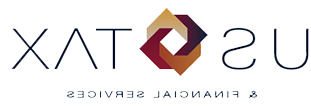
FBAR FAQs
What is an FBAR?
FBAR is the acronym for the Foreign Bank Account Report (formerly TD F 90-22.1 but is now called FinCEN Form 114). It must be filled online only and annually by April 15 (there is an automatic extension for expats to October 15) if the aggregate of the highest balances in your foreign (non-US) bank accounts is greater than $10,000 (approx. £6080). Depending on your cash and asset value, you may also be required to fill out Form 8938 for the purpose of declaring assets that exceed the $200,000 (approx. £121,602).
How do I know if I have to file an FBAR?
Check each of your non-US bank accounts for the highest balance at any given time between January 1 and December 31, even if the balance was only as much for one day. If the total across all the accounts (the aggregate) is more than $10,000, you must report ALL of them.
I sign checks for my local Scouts; do I need to include the highest balance for that account too?
Yes, remember this is not a tax return, so you will not have to pay as a result. This is simply a report of where you have financial interests that are not in the US.
What about my joint accounts?
There is a place on the form for reporting joint accounts. If the joint account holder is a US person you will need to provide their Social Security Number. If not, then leave that field blank.
I am a US person with a company abroad. Does my company have to report as well?
Your company does not need to report as well, but details of the accounts need to be provided to you for you to comply. You need to include any non-US bank accounts, even those bank accounts that are not yours but for which you have signing authority.
How do I convert from my local currency to US Dollars?
Convert foreign currency by using the Treasury’s Financial Management Service under Exchange Rates found in Reference & Guidance at The Bureau of Fiscal Service. Use the exchange rate from December 31.
What if none of my accounts exceeds $10,000?
The rule is that it is the aggregate of the highest balance in all non-US bank accounts held during the year. For example, if you have three non-US bank accounts and two of them have $2 each as the highest balance and the third had $9,997, you will have to file the FBAR for each missed year, declaring ALL of your accounts. Please note, the total is GREATER than $10,000.
What if I closed my bank accounts during the year?
These still need to be included if they existed at any time between January 1 and December 31.
I won the lottery and I had $1 million in my current account which I moved to my savings account, so do I have to report it twice?
Yes, but remember, this is only a reporting task, not a tax issue. Nonetheless, it is important that you are accurate with your information regarding the highest balances in all accounts at any given time in the calendar year.
Do I report half of the highest balances in my joint bank accounts?
No, you must report the full amount.
What if I don’t file this form at all?
The IRS and Department of Justice are actively looking for all US persons who are not compliant with their filing. If you determine that you are required to file this form, but you do not submit it, you are at risk of a fixed $10,000 fine for EACH ACCOUNT you did not report for EACH YEAR you did not file. These forms can be time-consuming but are straightforward. The bottom line is to file them and file on time. Read what can happen if you don’t.
I didn’t know about these forms! How do I make that right and get up-to-date?
Don’t panic. Your first course of action should be to contact your tax adviser for advice on getting back into the system with these or any other filing requirements. This will at least show effort that you wish to become compliant. The idea is to become compliant with all your US taxes voluntarily before the IRS finds you. Here is some information on Voluntary Disclosure.
I reported my interest income on my non-US bank accounts, but I have not done the FBAR Form as I did not know about it.
This is a situation which is recognized by the IRS and it is possible to catch up with your FBAR filings without incurring penalties.
Speak with your tax adviser if any of these, or any other tax situations, are unclear.






